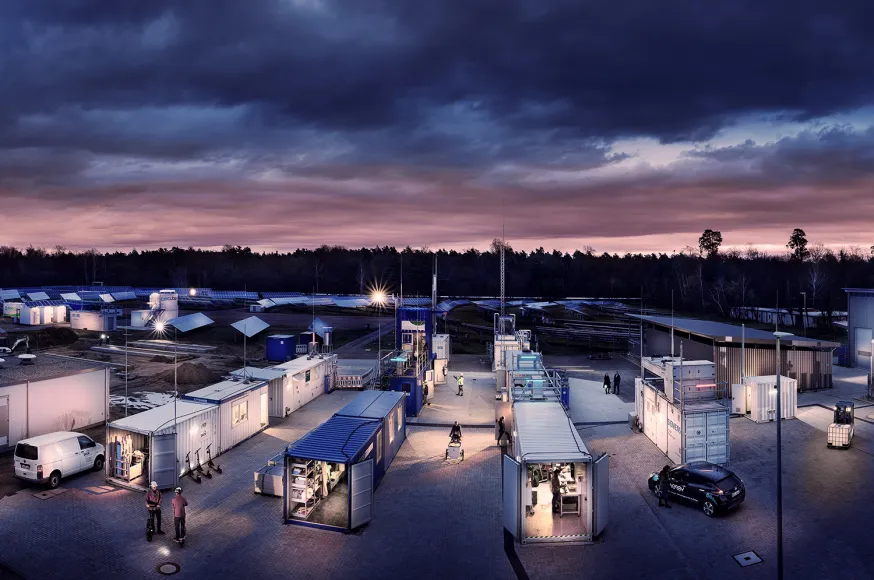RFNBOs are climate-friendly energy sources produced without the use of fossil or biological raw materials.
RFNBO (Renewable Fuels of non-biological origin)
RFNBO stands for Renewable Fuels of Non-Biological Origin. RFNBOs are climate-friendly energy sources that are produced without the use of fossil or biological raw materials. RFNBOs are based on renewable energy sources, in particular green hydrogen and carbon dioxide (CO₂), which is captured from the air or industrial processes. They are often seen as a promising solution for decarbonizing industry and the transport sector, especially in areas that are difficult to electrify directly.
Production of RFNBOs
RFNBOs are typically produced in several process steps using renewable energy:
Electrolysis for green hydrogen: the basis of many RFNBOs is hydrogen produced by electrolysis from water using electricity, using only electricity from renewable sources such as wind or solar.
Synthesis with CO₂: This green hydrogen is then combined with carbon dioxide to produce a synthesis gas that is captured either from the air (direct air capture), biogas plants or industrial processes. This synthesis gas can then be further processed using the Fischer-Tropsch process, for example, to produce synthetic fuels such as e-fuels.
The best-known RFNBOs include green methanol, synthetic kerosene and synthetic diesel.
Areas of application
RFNBOs are particularly valuable for sectors that are difficult to electrify:
Aviation: synthetic kerosene can replace conventional kerosene and help to drastically reduce CO₂ emissions in aviation.
Shipping: Green methanol and other RFNBOs can be used as clean alternatives to conventional heavy fuel oil
Industry and heavy-duty transportation: RFNBOs such as synthetic diesel are suitable for heavy-duty transportation and for industrial processes that require high energy intensity and can only be electrified to a limited extent.
Advantages of RFNBOs
Carbon neutrality: as RFNBOs consist of green hydrogen and captured CO₂, they are virtually carbon neutral when used.
Use of existing infrastructure: RFNBOs can often be used in existing combustion engines and infrastructure, easing the transition away from fossil fuels
Long-term energy storage: They can be used as chemical energy storage, which is particularly important to compensate for fluctuations in renewable energy.
